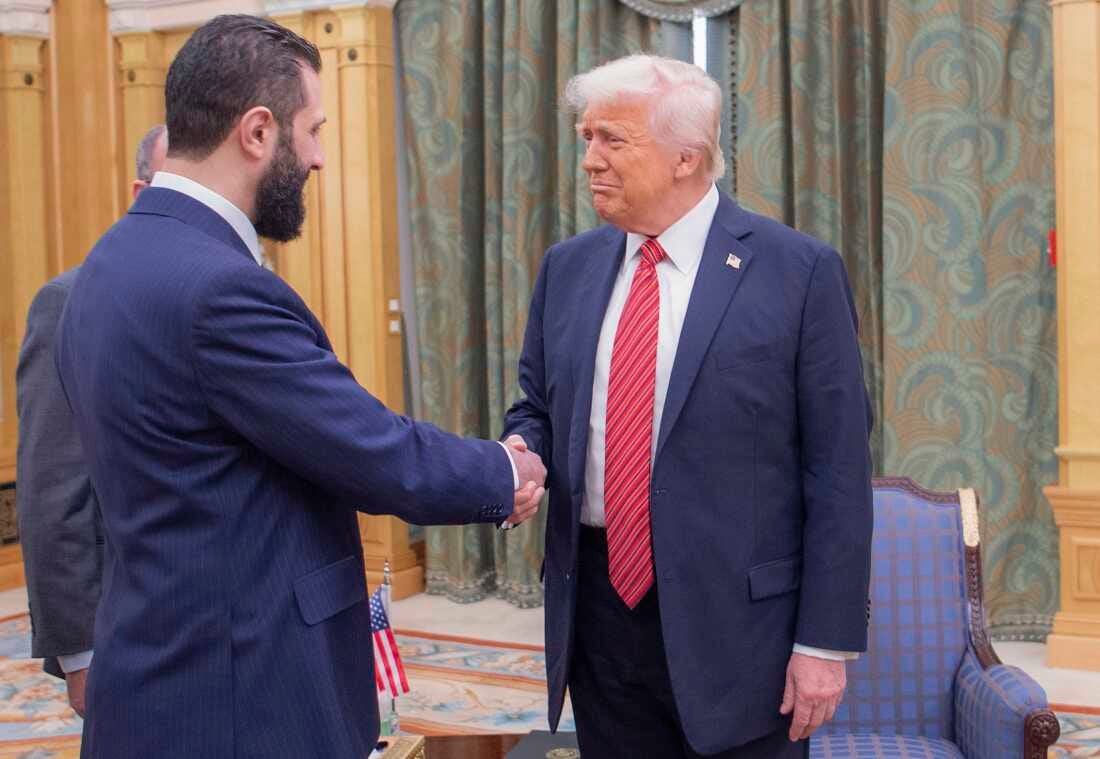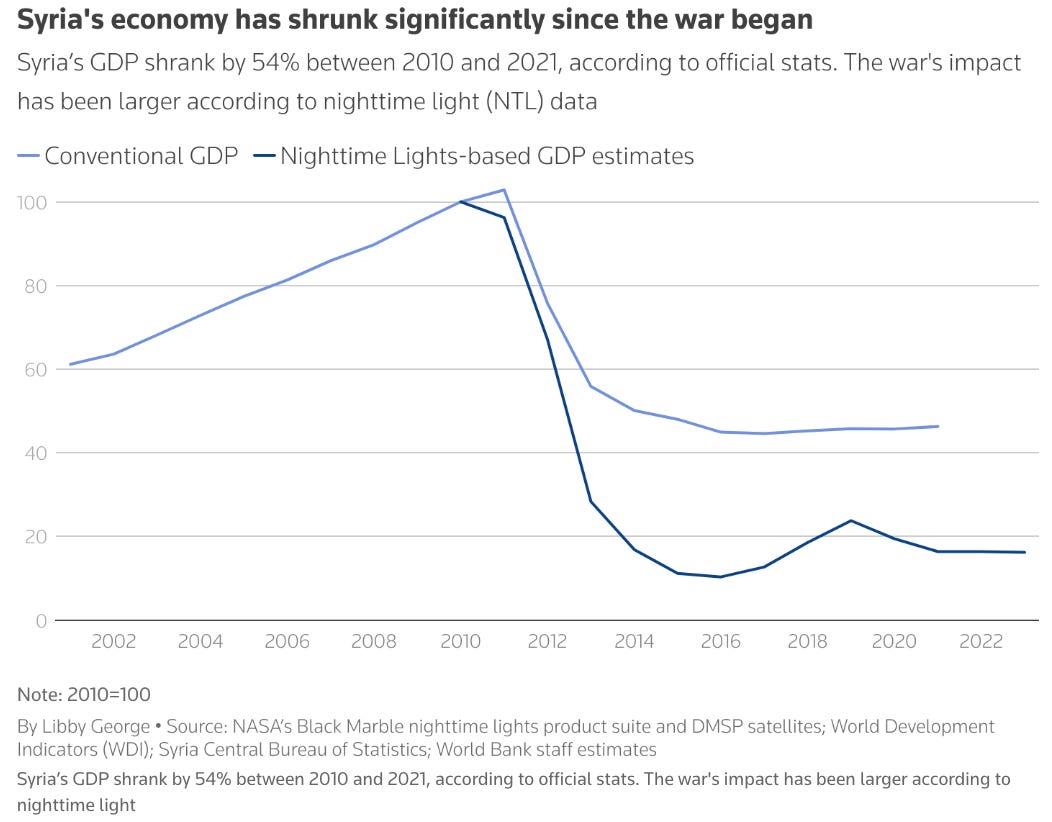The geopolitics of Trump's trip to the Gulf
This may have been first and foremost a business trip, but geopolitics still played a role.
In my previous post, I discussed the first foreign trip of Trump’s second term from a business perspective (linked below).
Today the focus is on geopolitics, and specifically Syria and Israel.
Lifting Syrian sanctions
Arguably the most impactful move Trump made during his Gulf Coast swing was only tangentially related to the countries he touched down in.
Trump meeting Syria's interim President Ahmed al-Sharaa in Riyadh

For years, sanctions (coupled with the Assad’s destructive policies) devastated the Syrian economy without doing much to unseat the regime.
As Syria’s economy hollowed out during the civil war (see below chart), export revenue collapsed, falling from $8.8bn in 2010 to ~$1bn in 2022.

While in Saudi Arabia, Trump met with Syria’s current leader, Ahmed al-Sharaa, a man previously branded a terrorist by the US but who more recently led the revolution that took down Assad.1 To the surprise of many, Trump announced he was giving the Syrians a “fresh start” by lifting sanctions on war-ravaged country.2
“It’s their time to shine,” Trump said. “We’re taking them all off. Good luck Syria, show us something very special.”
While the process of actually removing the sanctions in the long-term is a bit more complicated than simply a Trump declaration (Congress has to approve it), Trump’s move should temporarily waive restrictions and allow foreign governments to get much-needed aid into Syria (already, the Saudis and Qataris have paid off Syria’s World Bank debt).
The administration working with Congress to lift the sanctions by unfreezing assets, unlocking foreign investment and allowing Syria to access international credit would be a tremendous show of support for the new Syrian regime and (hopefully) provide a stable base from which long-term outside business investment can be made to help the country rebuild.
Trump’s decision to remove sanctions was welcomed with open arms by the Gulf states, who stand to benefit financially from investing in Syria’s rebuild.
No visit to Israel
It is notable that Trump’s announcement on sanctions was seemingly made without the knowledge – and against the wishes – Israel’s prime minister Benjamin Netanyahu. Instead, Trump said he made the move to lift Syria’s sanctions after discussions with Saudi crown prince Mohammed bin Salman (MbS) and Turkey’s president Recep Tayyip Erdogan. This calculus is a possible indication of Trump’s priorities.
Keep reading with a 7-day free trial
Subscribe to Nuance Matters to keep reading this post and get 7 days of free access to the full post archives.




